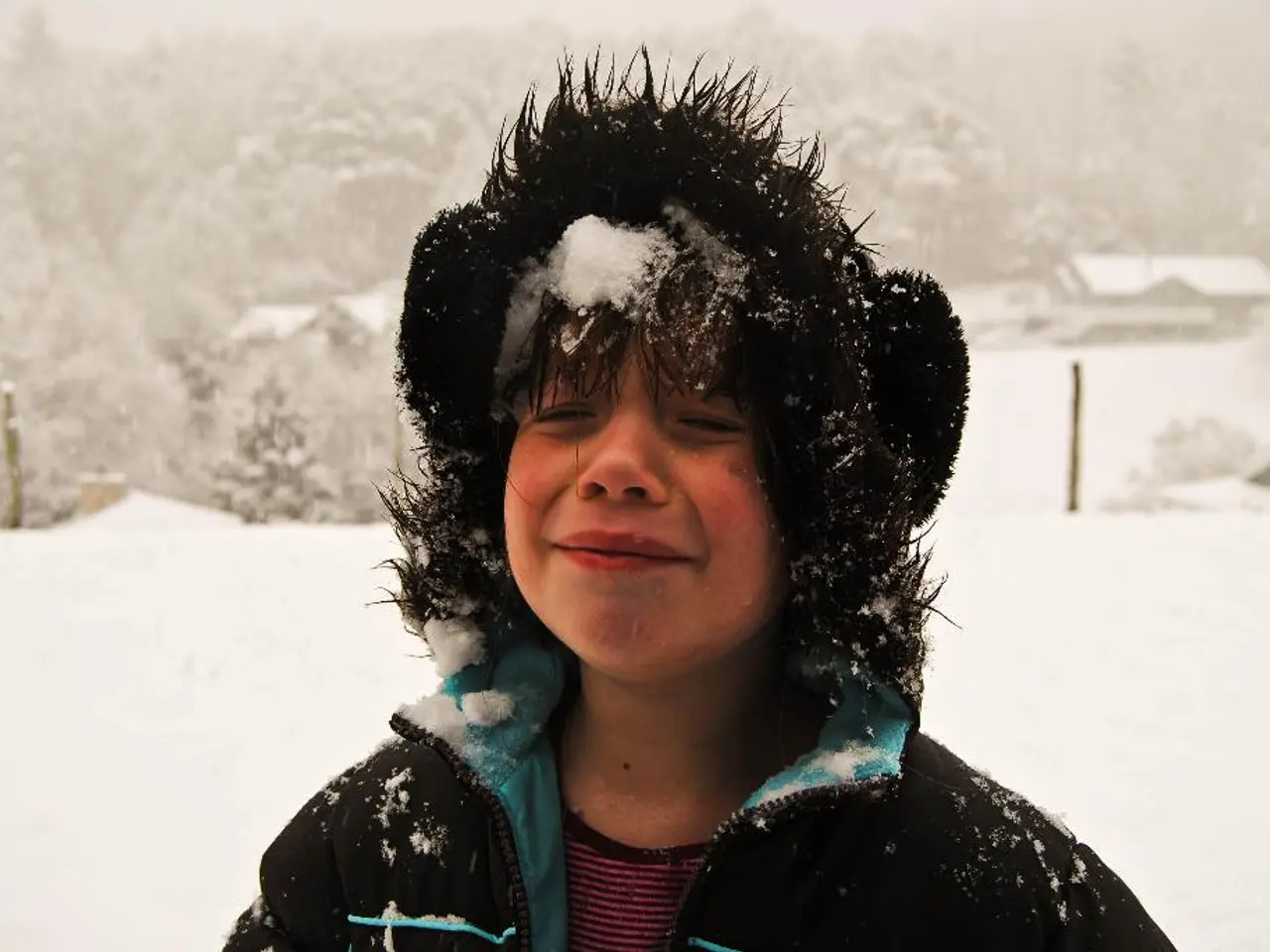Guiding an Anxious Child: Tips on what Action to Take (and What to Steer Clear Of)
=====================================================
Establishing a daily routine can provide anxious children with a sense of security and predictability, helping them navigate their day with less stress. Instead of asking leading questions about the cause of a child's anxiety, it's more effective to ask open-ended questions like "How are you feeling about school tomorrow?"
Effective strategies to support and guide children with anxiety include staying calm and present during their anxious moments, validating their feelings without minimizing them, and providing physical comfort when needed. Maintaining predictable daily routines and preparing children for transitions or new experiences through social stories or role-playing can reduce anxiety by making situations more familiar.
Encouraging independence and confidence through success experiences and promoting healthy coping mechanisms like deep breathing or engaging in hobbies are also beneficial. Modeling healthy emotional management and ensuring consistent psychological support with open communication and emotional validation helps children develop resilience and self-esteem.
In more severe cases, professional help such as cognitive-behavioral therapy or family therapy may be needed to address underlying issues and provide coping strategies.
Some key signs to look for that may indicate anxiety in children are excessive worry, avoidance of certain situations, sleep difficulties, irritability, trouble concentrating, physical symptoms like stomachaches or headaches, clinginess, and withdrawal from previously enjoyed activities. Persistent patterns of these signs affecting daily functioning—such as school, social interactions, or family life—can indicate anxiety needing attention.
Reassuring children that they are brave and capable of handling their fears, while not promising that their fears won't happen, fosters resilience and self-confidence. The 3-3-3 rule, a calming technique that involves focusing on three things you can see, three things you can hear, and taking three deep breaths, can be beneficial in grounding and managing intense emotions.
Avoid invalidating a child's feelings by using phrases like "don't worry," "it's no big deal," or "it's all in your head." Encouraging open communication and actively listening to a child's feelings can help build trust and understanding. If a child's anxiety persists and interferes with their daily life for more than a few weeks, seek guidance from a mental health professional.
If your child is struggling with anxiety, reach out to us for support. Our website is dedicated to helping families in Minnesota and Wisconsin navigate mental health struggles and thrive. Remember, never get frustrated with a child when they are feeling anxious, as this will only lead to distrust and more stress and anxiety.
Being a healthy role model by managing anxiety and stress calmly and confidently can be positive for children. Calming techniques such as slow breathing exercises can be beneficial in helping anxious children manage their emotions.
In summary, early recognition involves observing changes in behavior, mood, or physical symptoms combined with anxiety triggers, while effective support relies on emotional validation, preventative preparation, routine, coping skill development, and professional intervention when necessary.
- Engaging in health-and-wellness activities, such as deep breathing exercises, can act as a valuable coping mechanism for children, helping them manage their anxiety.
- Science suggests that maintaining a predictable environment and promoting mental health through open communication can contribute significantly to a child's well-being and ability to manage anxiety effectively.




